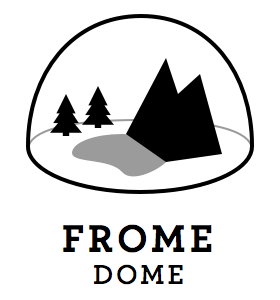Adventures in self-publishing: Rejected from Google News!
 Google, the search company that started as two guys at Stanford, openly discriminates against entrepreneurs. At least for its Google News product.
Google, the search company that started as two guys at Stanford, openly discriminates against entrepreneurs. At least for its Google News product.
Not only is that silly and short-sighted, but it should go against everything Google stands for.
Yesterday, I applied to have SplatF included in the Google News index. Beyond the hope to publish stories that might be considered “required reading” for the masses, I also figured that people searching Google News for, say, “iPhone 4S,” might appreciate my story angle to yesterday’s news, explaining Apple’s record-breaking sales weekend in context of its other iPhone launches. (Plenty of other sites liked it enough to link to it.) Even if I’m never featured in Google News, it seems logical to include SplatF — clearly a “news” site — in a news index.
But, it turns out, that Google has a rule about the sites that it includes in Google News: They can’t be one-person operations, and they have to appear to be “organizations.” Never mind solo shops practicing entrepreneurial journalism — Google wants news with overhead!
Here is the text of the email Google sent me to reject me:
Thank you for your interest in Google News. We’ve received your suggestion and we’re unable to include it in Google News at this time. We don’t include sites that are written and maintained by one individual. We currently only include articles from sources that could be considered organizations, generally characterized by multiple writers and editors, availability of organizational information, and accessible contact information.
If you have additional questions, please visit our Help Forum at: http://www.google.com/support/forum/p/news?hl=en
We appreciate your taking the time to contact us and will log your site for consideration should our requirements change.
Regards,
The Google News Team
This is especially disappointing because it feels un-Google-like. Here you have a company trying to use algorithms to organize and disseminate news and information, rejecting a news and information source because of the number of people listed on its about page.
I could easily (but dishonestly) stick a bunch of friends on the site as “contributors,” or something like that, to appease Google, but I would never do that. One of the things I decided right away is that I would never misrepresent SplatF’s size by using terms like “we” or disguising that it was a one-person attempt at self-publishing the news. But apparently, Google actually draws the line at how many writers you have.
So I figured I’d try to appeal my case to Google, explaining my situation and what I’m trying to do here.
In hindsight, I probably should have worded this differently, and included more information about my background — Medill journalism degree, employee no. 2 at Business Insider, reporter for Forbes, appearances on CNBC, lots of interest from mainstream media in syndicating my content verbatim, etc.
But in the interest of transparency, this is the email I sent in response:
Dear Google News team,
Thanks for your response, but I would like to appeal.
Your ad products, among others on the market, allow journalists to make a living by self-publishing — in essence, becoming their own news organizations. The readers that Google News could send to those publishers, in turn, could help those sites grow, potentially leading to them hiring more journalists in the future.
Why is that content not worthy of inclusion in the Google News index?
In my case, I am still under the exact same professional obligation to write original, accurate stories as I was at Forbes and Business Insider, my previous employers — it’s just a different economic arrangement. You had no problem indexing my stories and sending thousands of readers to them under those circumstances. Why now?
For what it’s worth, over the past 24 hours, editors at WSJ.com and a site affiliated with Time Inc. have both linked to my site. (Which, being Google, you already know. In fact, I assume you could easily call up all the “reputable” sites that have linked to mine since I started it three months ago.) So why is it that human editors at those sites can regularly link to my content, and send new readers my way, but Google News can’t?
It seems more Google-like to *support* those sorts of endeavors — and new journalism business models — by allowing sites like mine into Google News. Not to exclude them for frivolous reasons, like organizational structure.
Thanks for reconsidering.
Dan Frommer
Founder and Editor, SplatF
That didn’t go over well, apparently. I was hoping for some reconsideration and reflection from a human, but instead, a few hours later, I received the same form letter in response. Sorry, pal, you don’t have enough coworkers to matter to our database. So, here I am, rejected from Google News, and now probably on some “flagged for being a troublemaker and questioning Google” list.
Putting myself in Google’s shoes, I can understand why they made this decision at some point. Most one-person sites probably aren’t reputable news sources. And this way, there are a lot fewer sites for Google News employees to sift through on a case-by-case basis — they can just reject all one-person operations automatically, and use their policy as justification. It’s easier and cleaner for Google.
But I still think it’s an outdated policy that needs changing. Or at least a reasonable appeals process, where a site like mine could be granted an exception. Why?
- I can point out several factual errors and inconsistencies in stories written by bigger newsrooms that are indexed in Google News. (Not to mention huge ethical scandals, plagiarism, and fabricated stories — stuff you won’t find at SplatF.)
- I can find instances of big news “organizations” — Google’s preferred variety — adding little to no value, but getting the benefit of Google News inclusion anyway. Like this ABC News story yesterday (linked last night from the Yahoo homepage) rewriting a scandalous MacRumors forum post in the format of a news article, but adding little value and not doing any work to confirm that it is actually true. (“The whole thing may have been a joke,” it admits at the end. Yet it’s news! because it’s from ABC.)
- And I can point out plenty of information on one-person sites, such as John Gruber’s Daring Fireball, Michael Arrington’s Uncrunched, Horace Dediu’s Asymco, and even SplatF, that is easily worthy to Google tech news searchers.
Moreover, this is a new age of media, where readers and writers are connected more closely than ever, thanks to tools like Twitter, Google Reader, and even Google+. I follow individual writers just as much as I follow the organizations that employ them, and I am hardly alone. Google News and other Google platforms should be encouraging and enabling this, not stifling it. You don’t have to look far to see that Google’s competitors — Amazon and Apple, in particular — are building platforms to support self-publishing, while Google apparently rejects it.
(Google also boasts on the About Google News page, “We do things a little differently, with the goal of offering our readers more personalized options and a wider variety of perspectives from which to choose.” But apparently, self-publishing journalists aren’t included in those perspectives.)
Google’s best future is one where legacy media is decentralized, and where an aggregator like Google News helps people make sense of it all. So why is it behaving the opposite, not supporting new entrants? (Unlike, say, Techmeme, which is a much better tech news aggregator and graciously supports entrepreneurial journalism.)
Why does Google discriminate between a post I write on SplatF and one I write for, say, Business Insider, where my editorial process is the same? (Perhaps Google has an outdated view of the publishing workflow at many online news organizations?) If anything, I’m even more careful since I started SplatF, because it is just me, and I have no one else to check my work and no corporate structure to hide behind.
Anyway, now, I assume, I am banned for life from Google News. But I recommend to Google management that they think a little more about the sort of news service they want to offer in 2011. Do they want to only lift the relevance of yesterday’s news brands? Or do they want to help support the future of media, where small operations can report and analyze news with the exact same accuracy and ethics as a large corporation?
The rest of Google’s business — publishing and search technology, advertising platforms, venture capital, etc. — seems aligned with entrepreneurism and small organizations challenging big incumbents. But for whatever reason, Google News is the exact opposite. And that’s too bad.
Related: Adventures in self-publishing: SplatF’s first quarterly report

Check out my new site: The New Consumer, a publication about how and why people spend their time and money.

